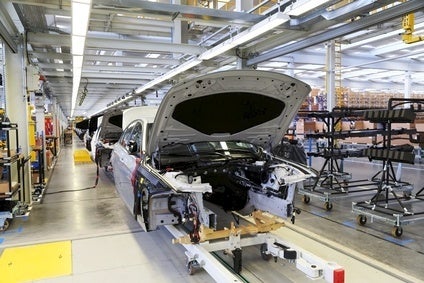
After some tense negotiations, both sides ended up yielding ground and the renewed automotive accord between Brazil and Mexico was finally signed yesterday (9 March) in Rio de Janeiro. Yet analysis suggests Brazil managed to achieve little advantage besides renewing import/export quotas for four years.
Between March 2015 and March 2016, the annual amount of bilateral trade will reduce from $1.64bn up to now to $1.56bn duty free. After this, quotas will rise 3% a year from a low initial base, a tiny victory for the Brazilian government.

Discover B2B Marketing That Performs
Combine business intelligence and editorial excellence to reach engaged professionals across 36 leading media platforms.
Mexico reckons its 2015 sales to Brazil will dip by up to 10% compared with 2014. It is worth bearing in mind also that the recent acceleration of the Brazilian real devaluation makes life quite hard for importers in general in Brazil, especially those dealing in light vehicles.
Regardless of Mexico being more cost-competitive (especially for labour), plus more favourbale taxes and general infrastructure than Brazil, facing an exchange rate now 20% more unfavourable is far from easy.
This exchange rate swing (yen valuation versus the dollar) has already hit Japan, severely hurting exports of vehicles and other goods.
In 2014, Mexico used all its export quota but Brazil barely managed to return ship 80% of its entitlement.
It’s not so long ago Mexico was imposing the quotas. That was mid last decade, with a devalued Brazilian real and a Mexican market (like today’s) smaller than Brazil’s. Circa 2005, the dollar was worth about BRL3.00, the sames as now, 10 years later.
New in the latest Brazil-Mexico accord is quota division by automaker. It was agreed that each country would determine who gets what slice of 70% of its export quota while the importing country decides how the remaining 30% will be diced up.
Previously, Mexico decided all company quotas on their territory, leading to some market distortions.
The accord excludes lorries but both sides are drafting a proposal for their respective governments to discuss by the end of 2015.






